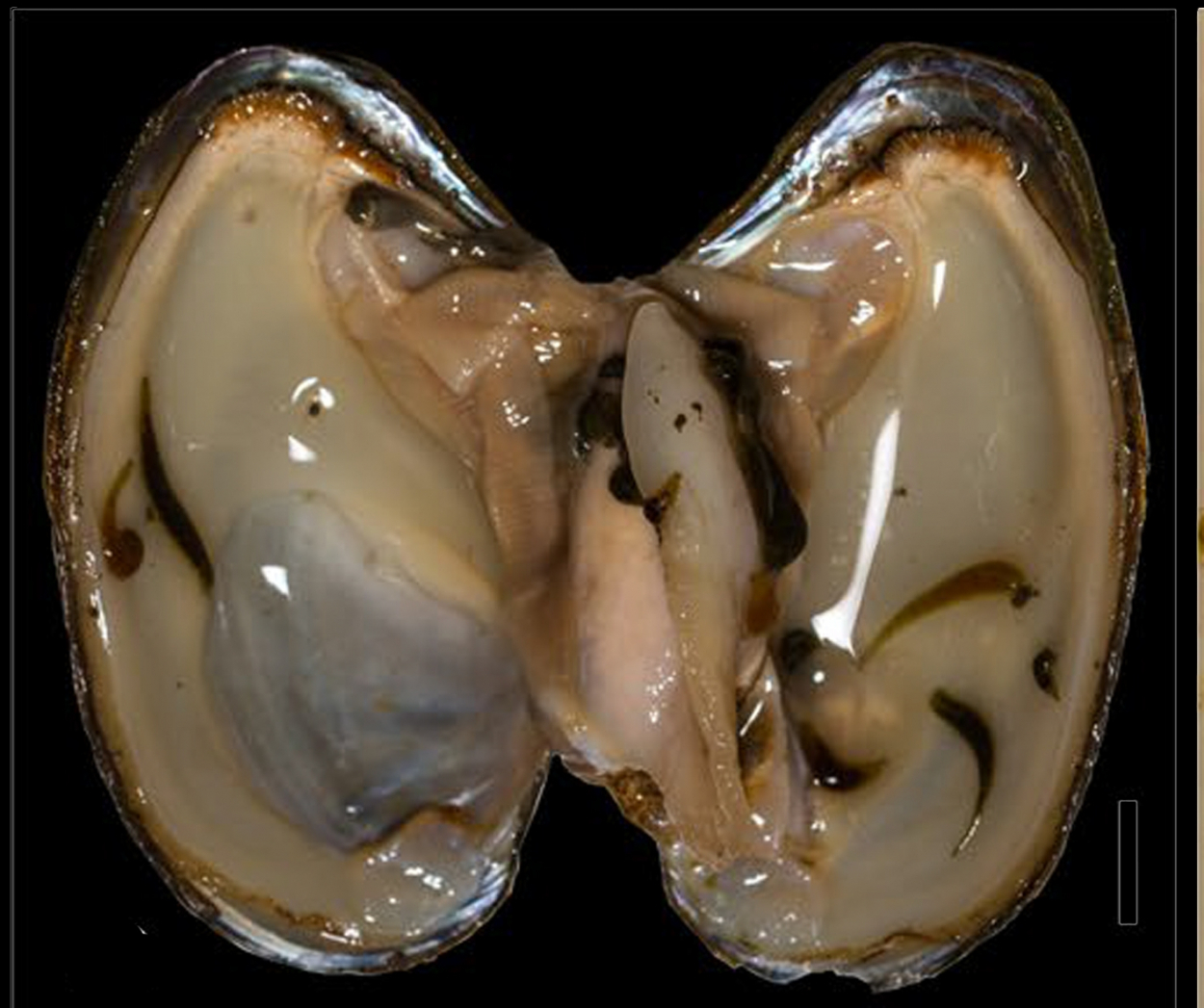Zoologists from St Petersburg University have described unknown details of leech life

An international team of scientists, which included representatives of St Petersburg University, has discovered an unknown side of the ecology of leeches. The researchers found out that a whole group of these annelids chooses not mammals as hosts, but freshwater mussels (Unionidae) – large bivalve molluscs.
Research findings have been published in a journal by Nature – Scientific Reports publishing group.
Using molecular genetic and morphological methods, the scientists studied data on 1334 leeches collected over the past 20 years. A detailed analysis revealed that there is a special ecological group of leeches that has adapted to inhabit the mantle cavity of the mussels. These annelids were found in molluscs all over their natural habitat: in waterbodies of North America, the Far East, Southeast Asia and Africa.
Interpretation of nucleic acid sequences made it possible to draw conclusions about the history of the relationship between leeches and their hosts. The scientists constructed a model for the evolution of leeches based on the calibration of fossils. These included an ancient leech cocoon – aged about 220 million years – found in the ice of Antarctica. The data obtained suggest that leeches are an ancient group that evolves extremely slowly. Based on the calculations, it was possible to assume that leeches moved toward parasitism on unionides 15–20 million years ago. Interestingly, capturing freshwater mussels as hosts occurred at least three times in three different groups of leeches during their evolutionary history.
‘Inhabiting mussels is a beneficial evolutionary strategy. Predacious insects and fish prey on leeches, so the shell becomes a good refuge and habitat. All in all, we have counted 12 types of leeches in the world, which in their development are closely related to freshwater mussels and spend most of their life in their mantle cavity. The leech leaves its host only when it wants to accumulate fish blood, which is richer in nutrients and which it stores in a special crop. It can then lay its eggs when it returns to the freshwater mussels,’ said Ivan Bolotov, the team leader, Director of the Federal Centre for Integrated Arctic Research of the Russian Academy of Sciences (Arkhangelsk) and a corresponding member of the Russian Academy of Sciences.
Due to their small size and lack of interest from zoologists, most species of these leeches were unknown to science. The scientists described seven new species of these animals. However, they are sure that the number of parasite species could be much larger. Leeches that use mussels as hosts have not been found in the waterbodies of Europe and the Middle East.
The intensity of infestation of mussels with leeches in various regions of the world was also determined. The highest percentage of infestation was recorded in East Asia (the Russian Far East, South Korea, and Japan). Southeast Asia is in second place; and Africa occupies third place.
The study of the complex relationship between leeches and freshwater mussels also raises new environmental challenges.
Unionida are one of the most threatened groups of freshwater mussels. They are an important link in the system of natural self-purification of waterbodies. Reducing their numbers can lead to disruption of the system. Therefore, zoologists around the world are currently paying much attention to factors that threaten the well-being of freshwater mussels such as: anthropogenic contamination of water bodies; global warming; and changes in the hydrological regime.
Doctor of Biology Maxim Vinarski, a research participant, Head of the Laboratory of Macroecology and Biogeography of Invertebrates, St Petersburg UniversityAccording to Ivan Bolotov, climate warming can lead to an increase in the number of leeches inhabiting freshwater mussels, which will lead to their extinction in different regions of the world, including in Russia. The data obtained are the basis for further research. This will make it possible: to better assess the scale of interaction in the ‘freshwater mussel – leech’ system; and to understand how serious is the threat that leeches pose for the well-being of the freshwater mussel populations.
The research headed by Professor Maxim Vinarski was partly supported by a grant from the Russian Science Foundation No 19–14–00066.

